"Books as we know them, on paper, are transitioning into digital panels: electronic, flat screen displays, with cheap electronic memory large enough to store several hundred titles.
Consider their dominant benefit:
they save trees, by eliminating the need for printing paper and cardboard cartons necessary for storage and shipment of books. The absence of physical books equates with eliminating warehouses for their mass storage. There are massive savings on maintenance costs on vans and trucks, and associated costs on fuel needed to run them.
E-books also enable instant service at your keyboard, as you can download multiple titles into a single device, which can accommodate thousands of pages of text and imagery in a finite physical space.
A single, inexpensive, high-definition screen can display hundreds of books, magazines, and newspapers; the amount of material needed to produce one paper book far exceeds that needed to produce several hundred e-books.
Purists still prefer the feel of a paper book, but as haptic (pertaining to the sense of touch) technology gets more sophisticated, it is inevitable that e-books will soon have the look and feel of paper books…but not their limitations!
Clear-cutting entire forests for paper is a violation against nature!
This practice will be trumped by memory boosting technology: just a few years ago, we were amazed at storage capacities in megabytes, then gigabytes, and now terabytes (each terabyte is a thousand billion bytes).
The power sources for such amplified memory devices are getting cheaper and more sophisticated; perhaps we will realise that we should be collaborating, instead of competing, with nature.
After all, nature to be commanded, must be obeyed.
Modern consciousness is decorated by the images and imaginations of every age. Books must reflect this truth, and evolve with the times.
Creativity is multiplicity derived from the destruction of the original unity: the act of grinding destroys the corn but, at the same time, multiplies it by fragmenting it. This is the same with e-books, emerging from the digitizing of traditional books.
Cremation is creation: burning is learning.
We must keep moving ahead, or stay dead: all that stays put shall fall; that which is in motion, shall stay."
What Dilip Mukerjea has written, as a brief essay - in August last year - is essentially a personal reflection of 'sustainability'.
In the corporate world, we call it 'The Triple Bottom Line' (3BL) strategy.
For corporations, the 3BL strategy sets out a challenge to make themselves differentiated from their competitors, to increase their profitability, & more importantly, to improve the environment, as good corporate citizens.
That's to say, to make their businesses ultimate part of the global climate change solution today.
The ROI to the company as such comprises 'People, Planet & Profit', a term believed to have been coined by the Royal D
 utch/Shell Company.
utch/Shell Company.It is principally intended to expand the traditional accounting report framework to take into the social & ecological/environmental performance in addition to economic/financial performance.
In a nut shell, I can see that everything boils down to an endeavour by corporations - as well as consumers - to reduce the ecological footprint, & to avoid the endangering depletion of natural resources on the planet.
As we all know, books & magazines gobble up trees. Sadly, global climate change is driven by rising concentration of carbon dioxide in the atmosphere.
Trees pull carbon out of the atmosphere. Less fallen trees mean a carbon neutral lifestyle for all of us.
Interestingly, & come to think of it while drawing apt cues from planet Earth's friendly genius, also engineer, inventor & futurist R Buckminister Fuller, we are all crew members travelling together on the same old spaceship.
Actually, what I have just highlighted has been sparked off today by Dilip Mukerjea, when he suddenly realised that his earlier thoughts, while writing the essay part in Taleblazers, may have unwittingly entered into a collision course - somewhere in the universe - with the brilliant thoughts of Dr Winston Wei, who has created Smartt Papers, an environmentally friendly, world's leading compression & transformation technology.
For airlines & the publishing industry, & with the timely role of Smartt Papers technology, the carbon costs, so to speak, can be turned into business opportunities.
Please refer to my earlier post with regard to our meeting with Dr Winston Wei.
Is it a coincidence? No, not the way I see it. Great minds think alike. More likely.
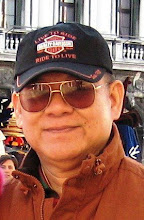


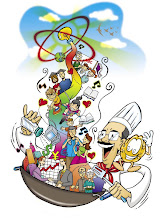
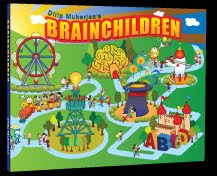



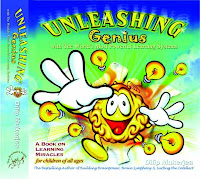
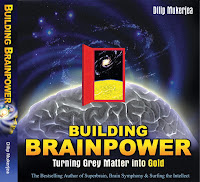
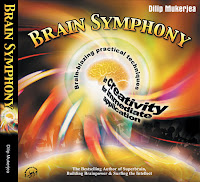





No comments:
Post a Comment